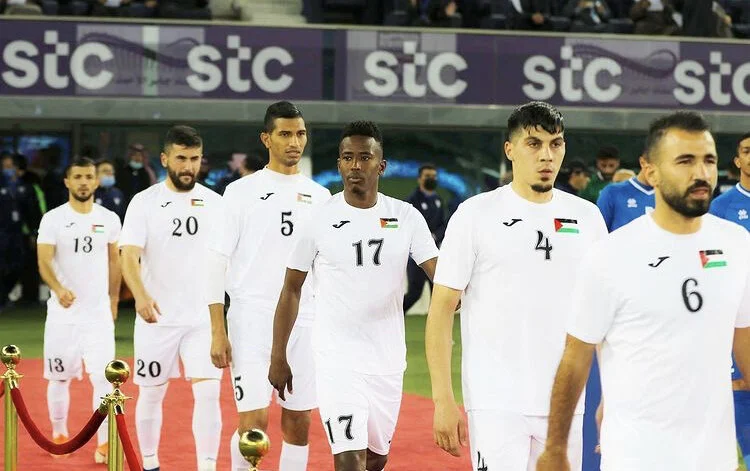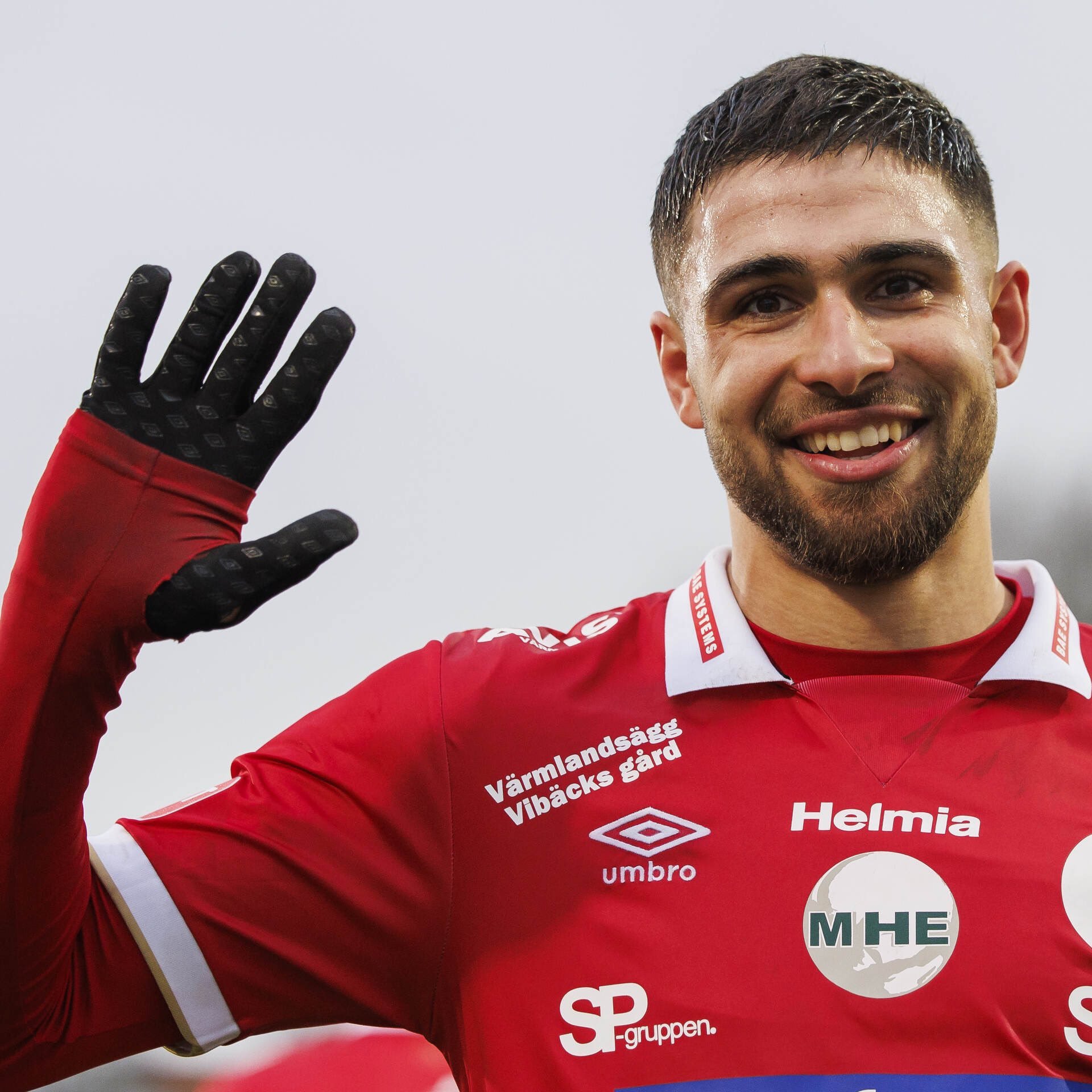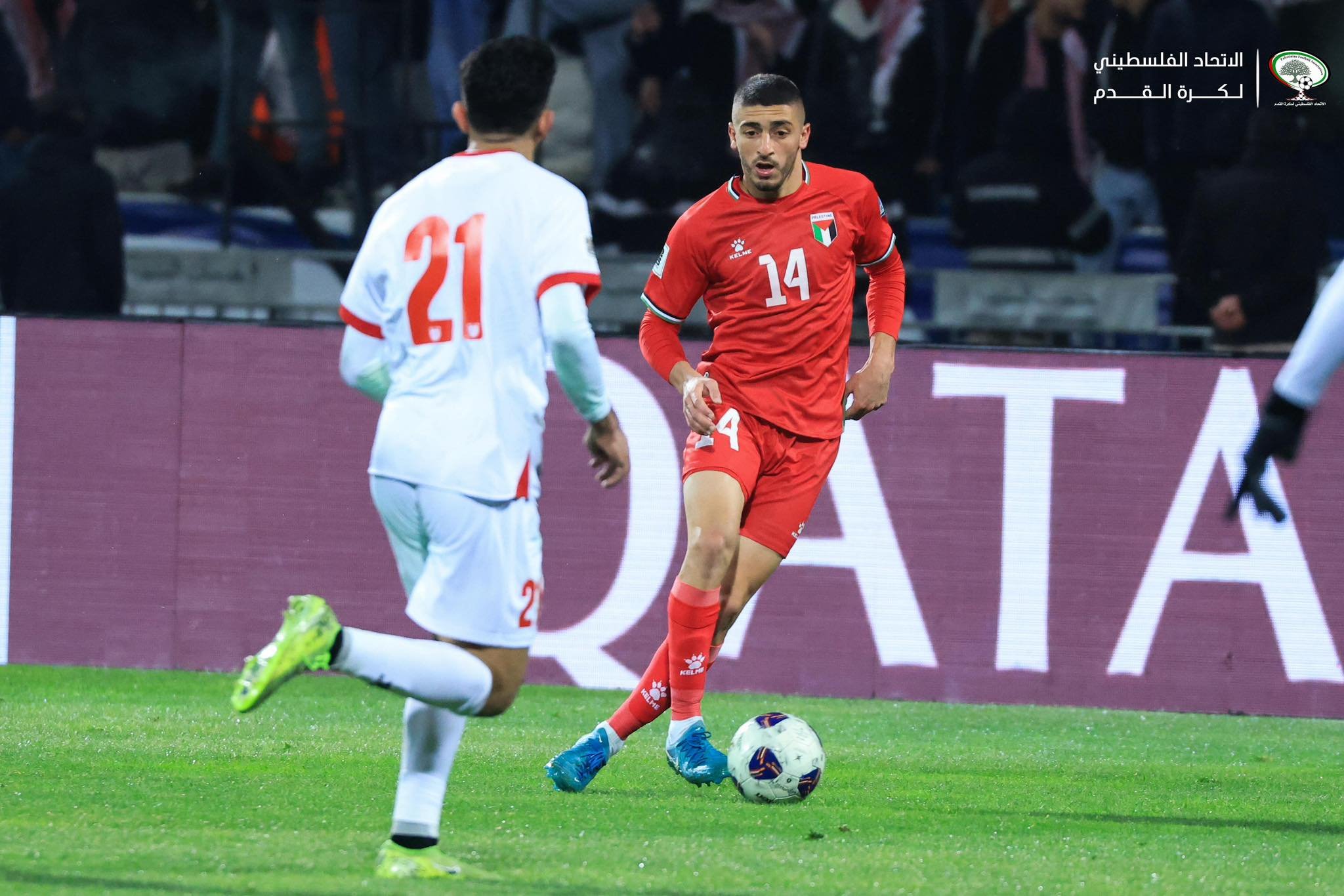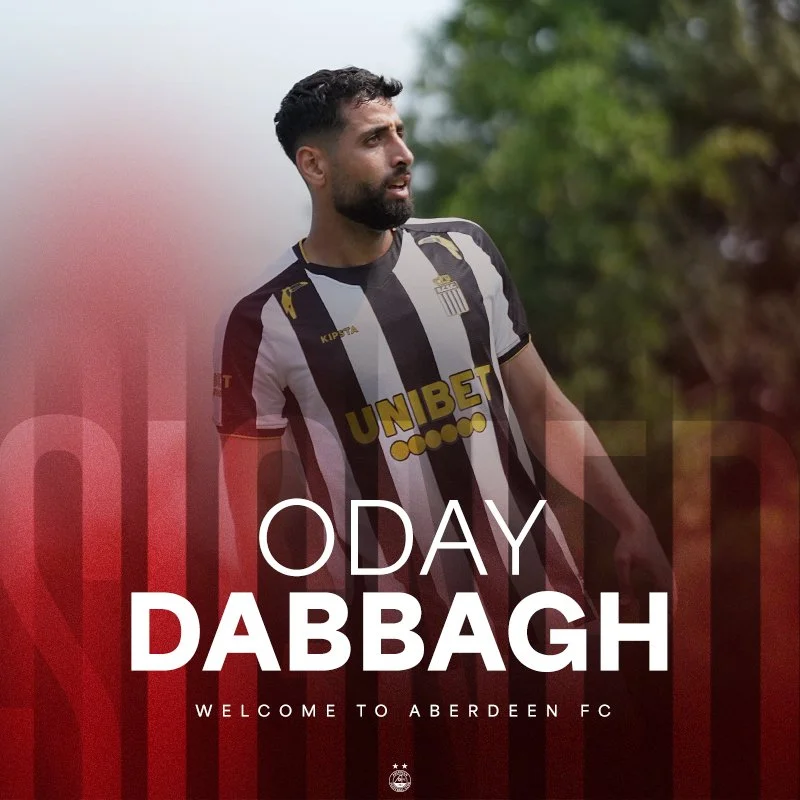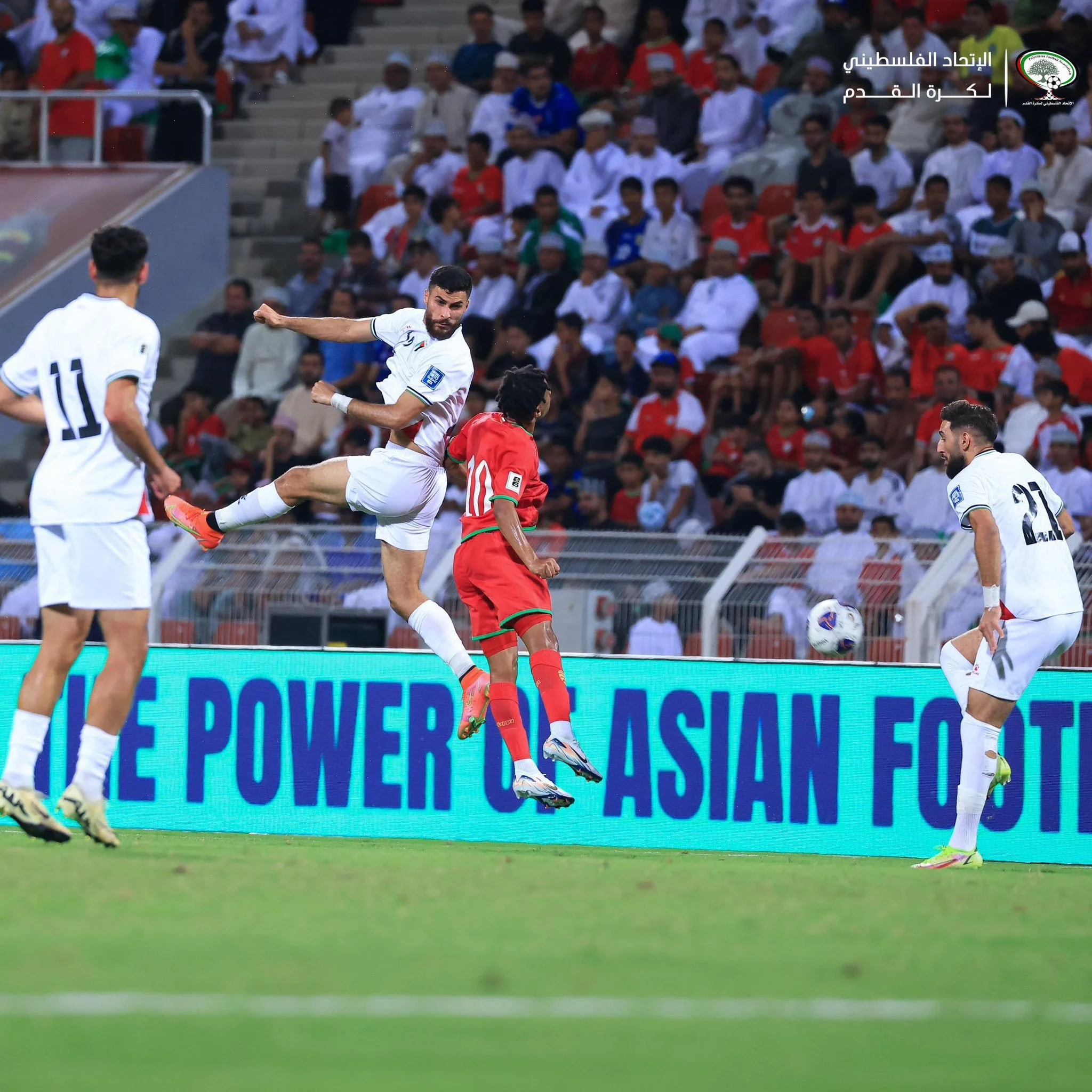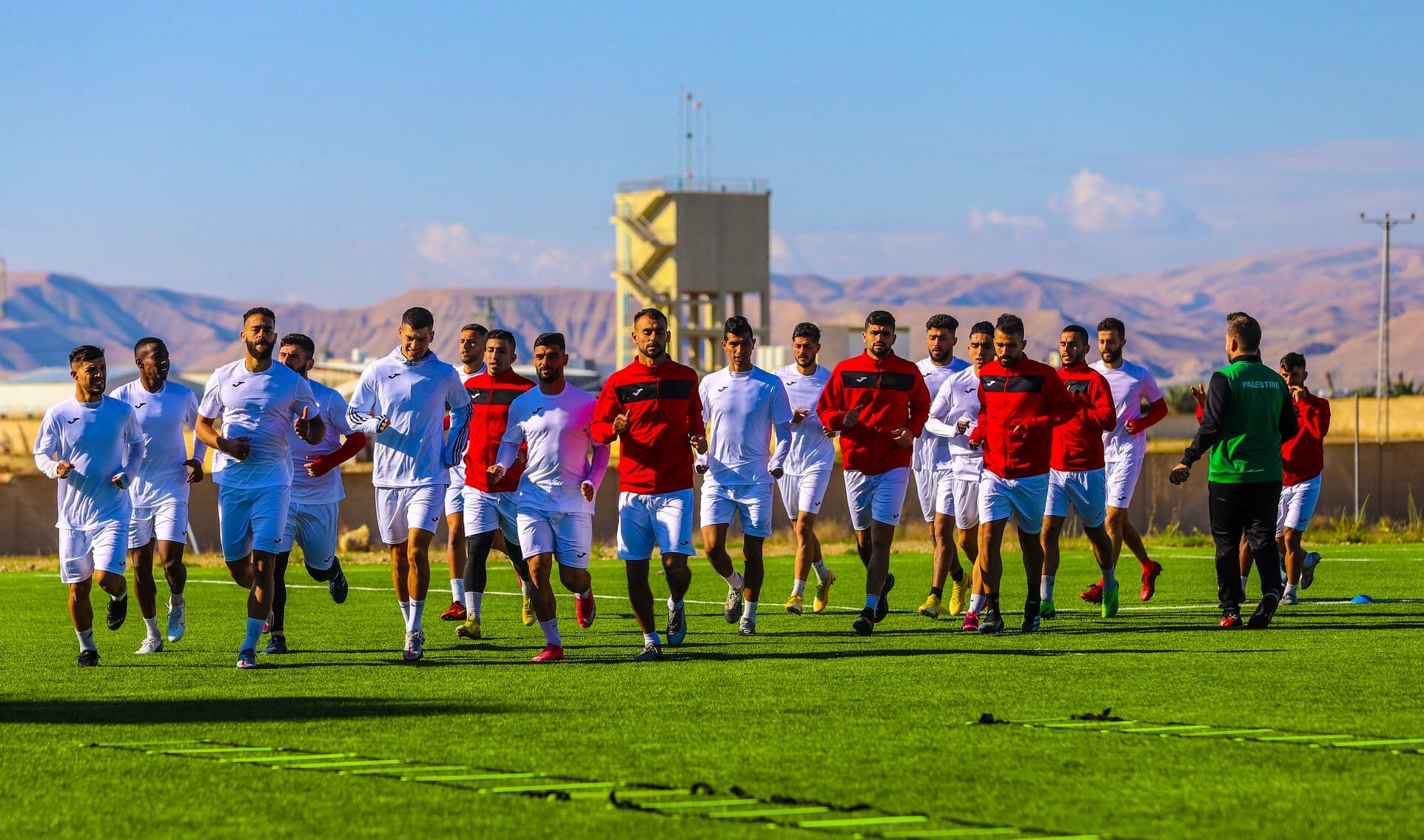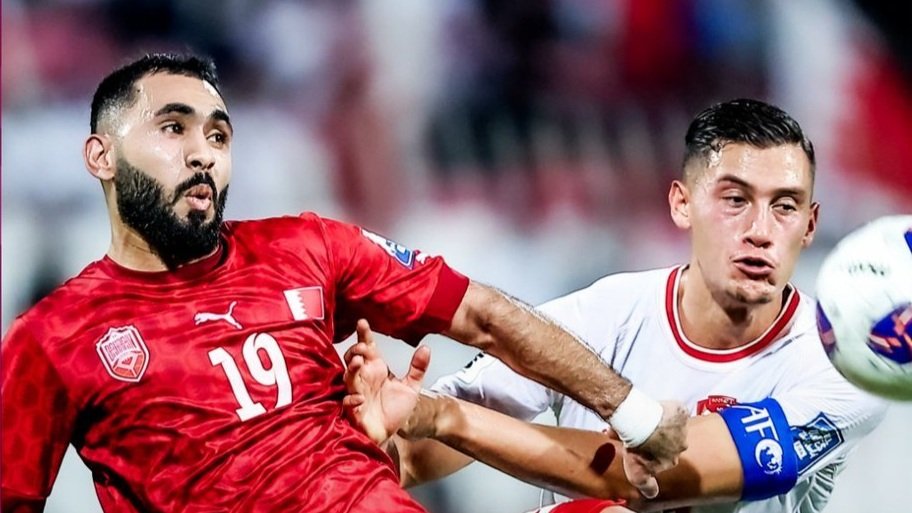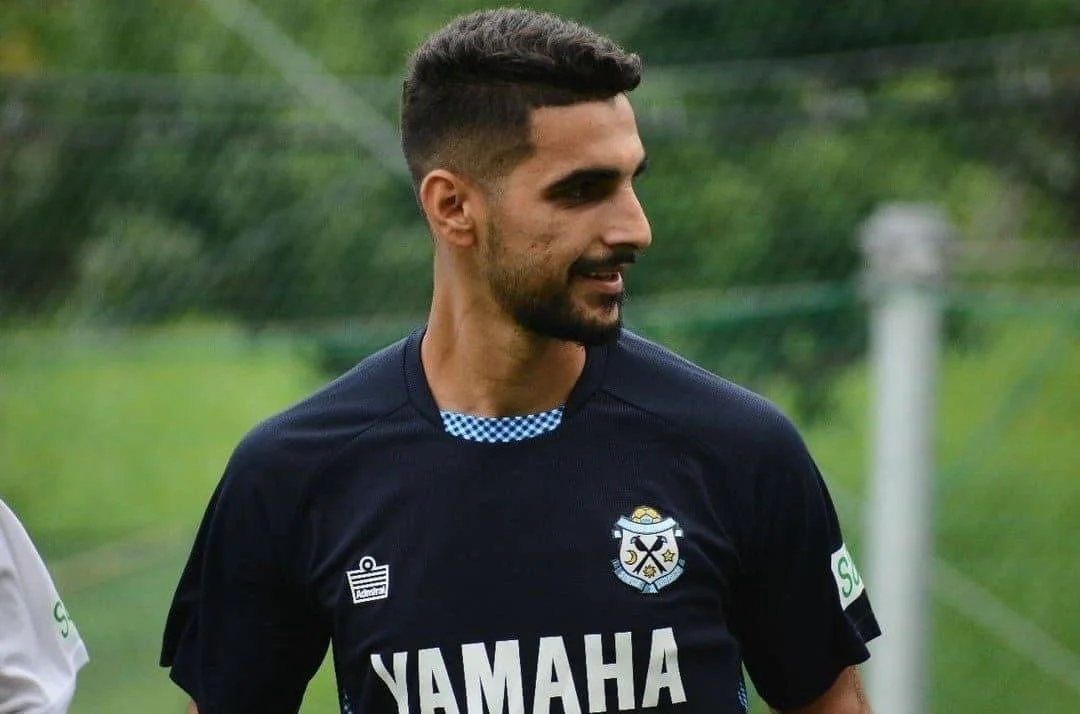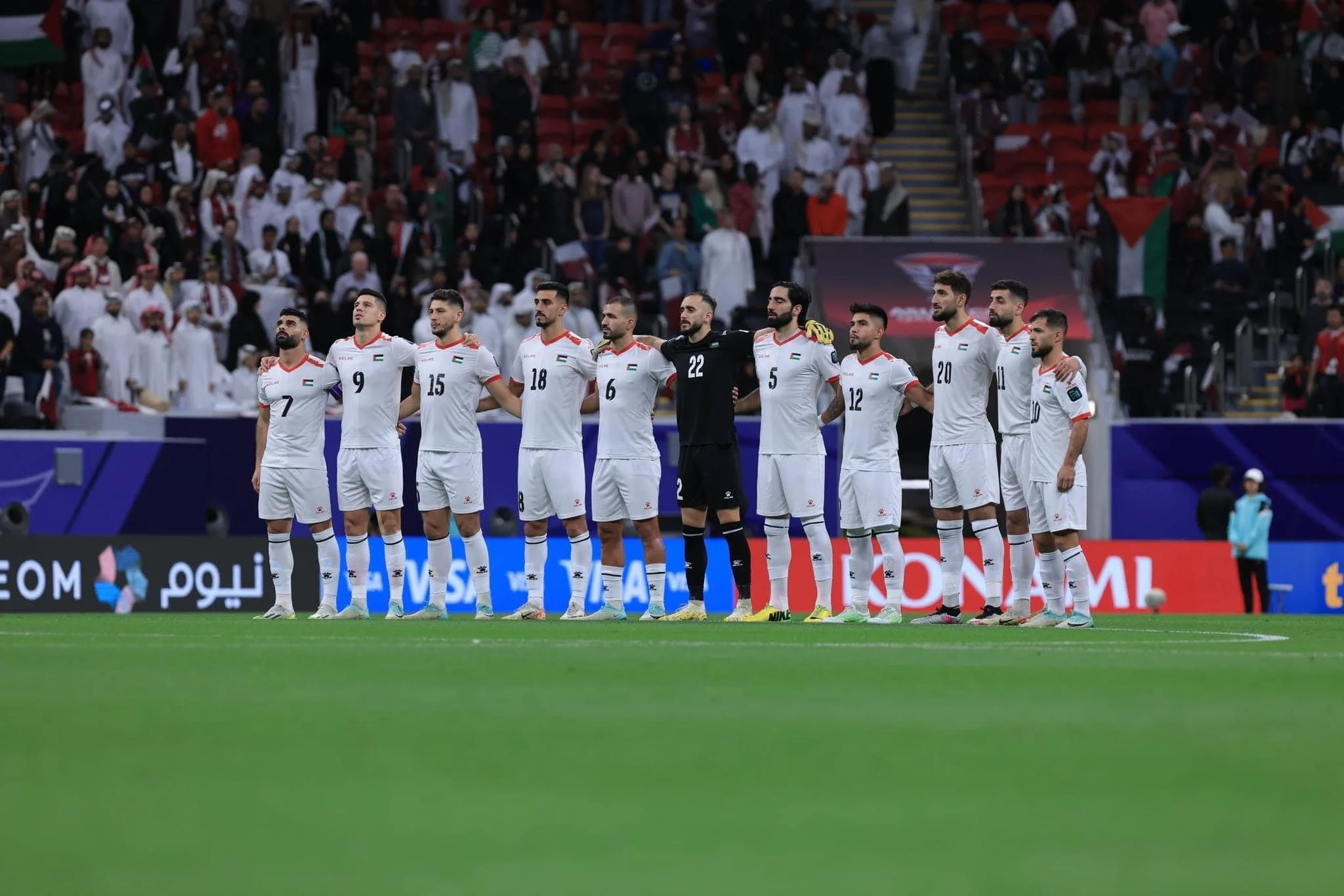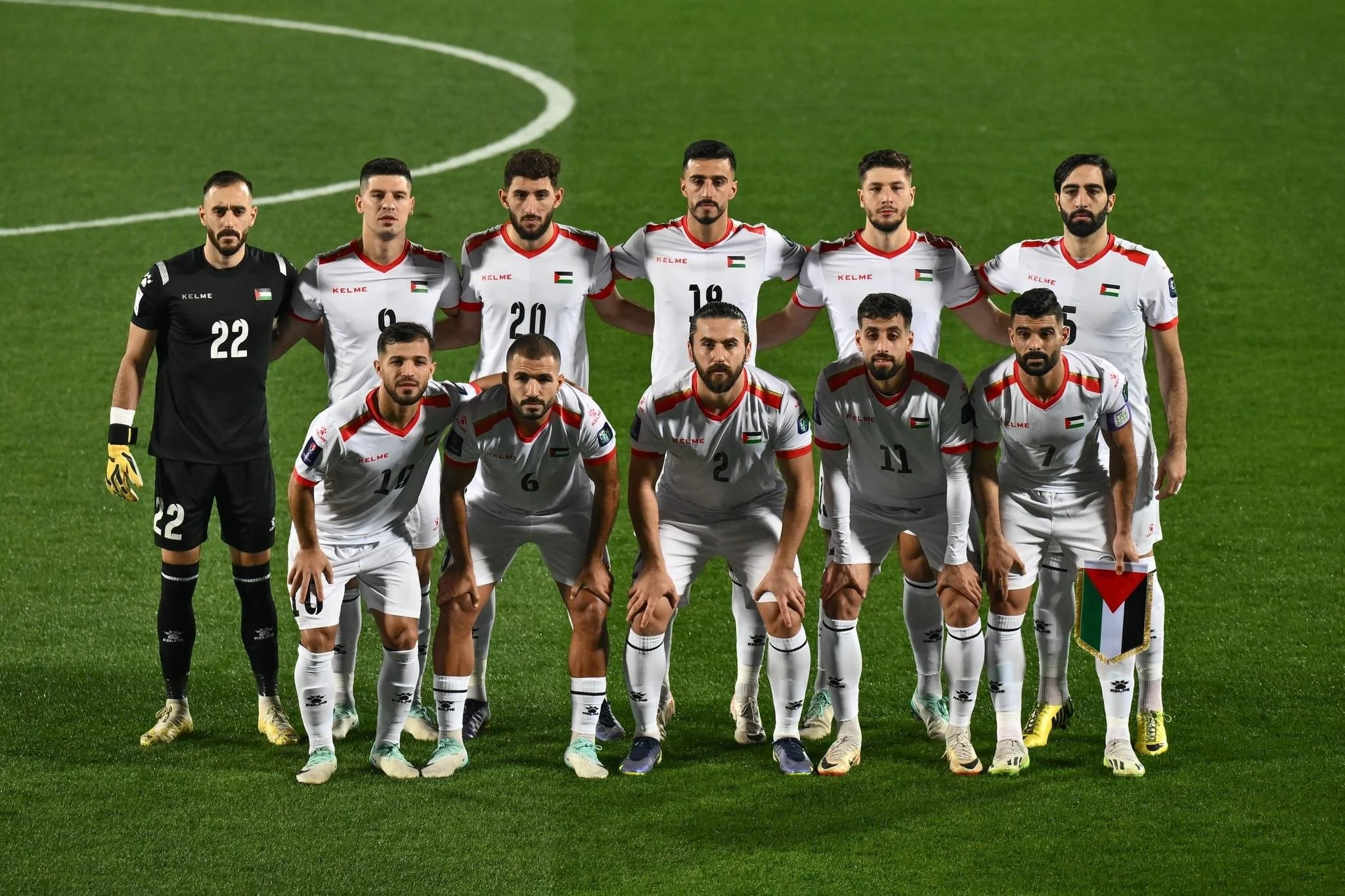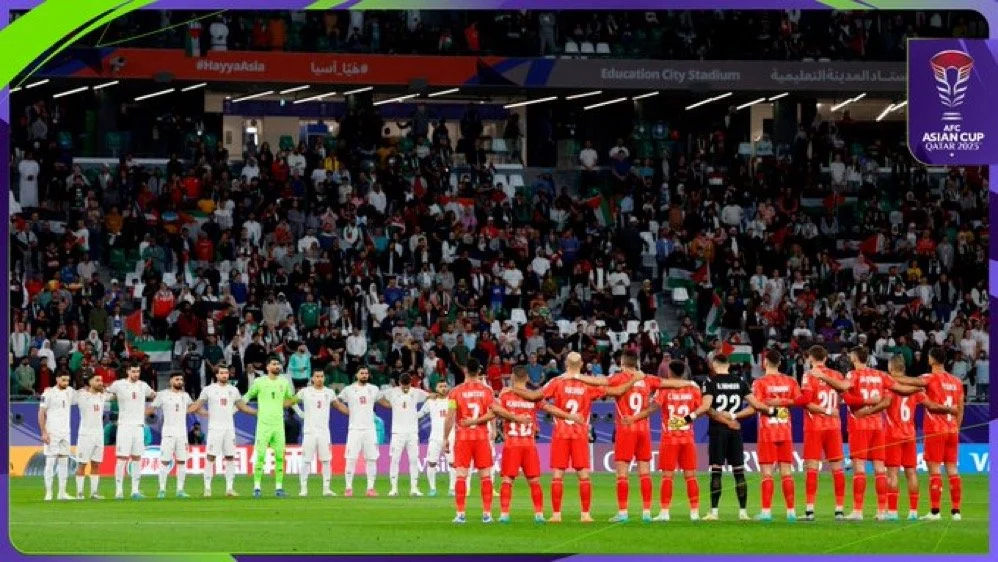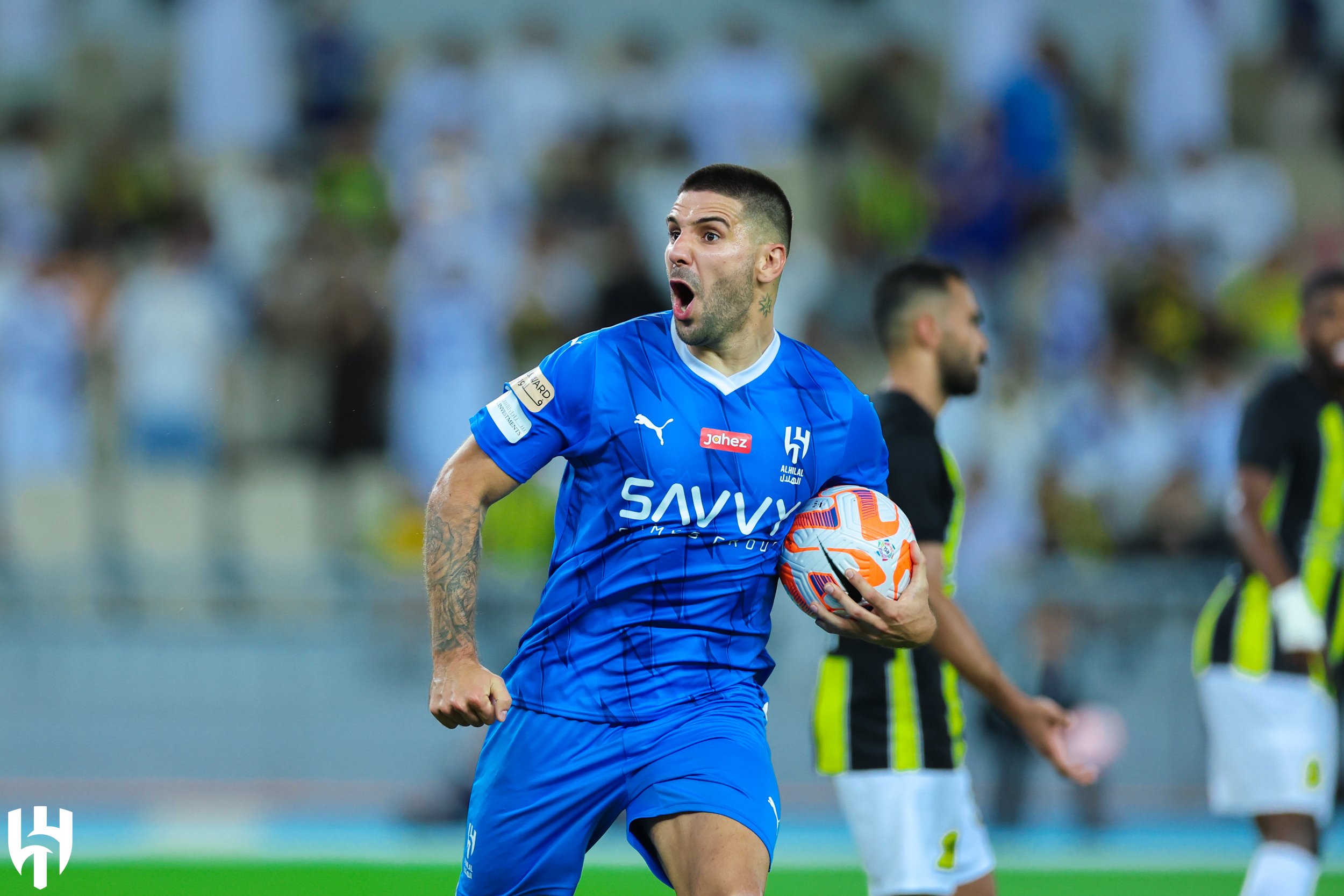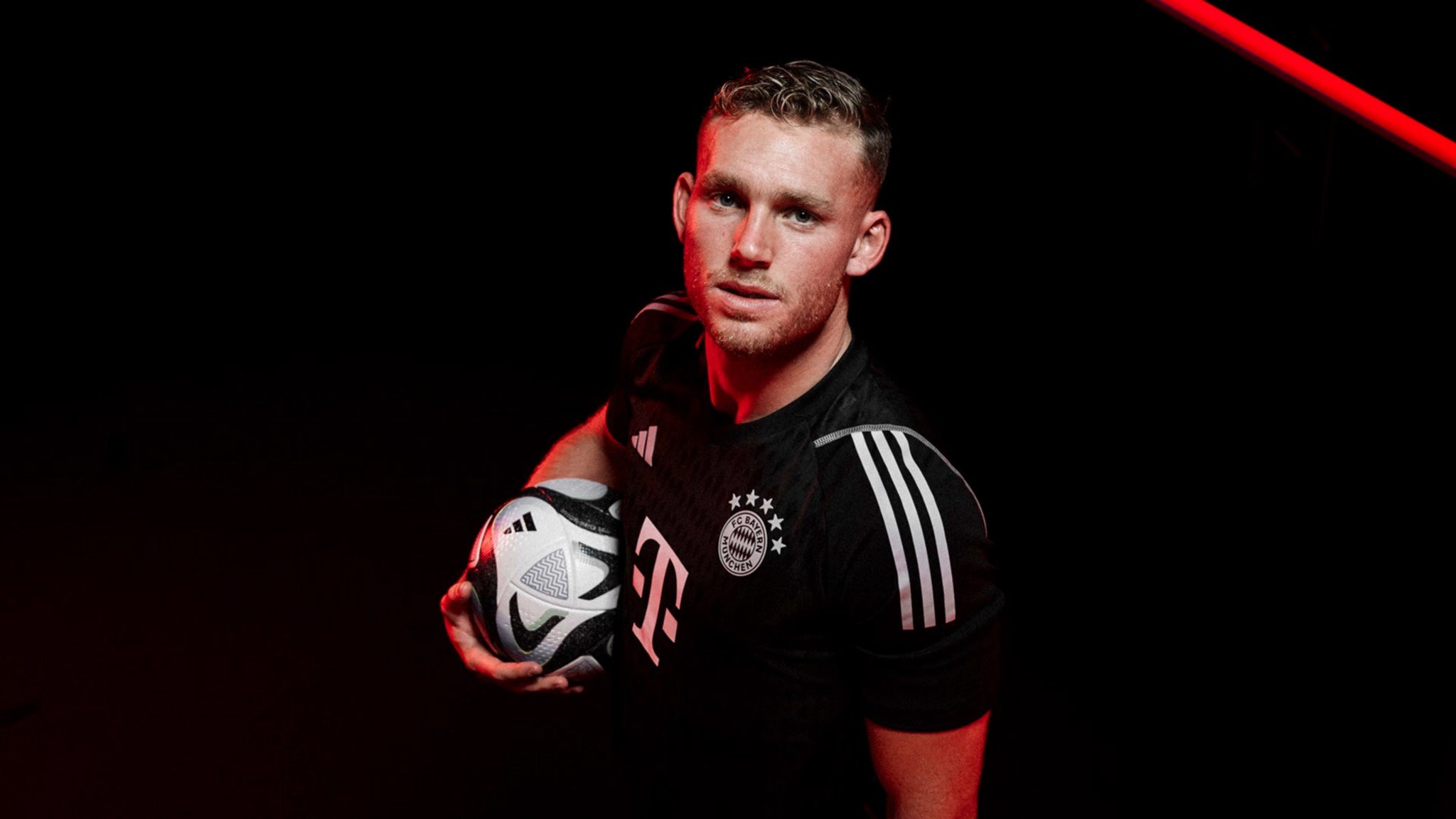The Palestinian Football Association’s poster for the 2022 World Cup qualifier against Saudi Arabia in Riyadh (Tuesday) hosted 10 of the Fida’i stars, with Mousa Farawi, Hilal Al-Quds defender, as the main figure.
Over the past two years, Farawi (23) has been one of the rising names in Palestinian football. He played in the AFC Cup, the Arab Club Championship and a World Cup qualifier. But beyond his football rise, Farawi is holding an interesting and brave story.
In this exclusive BabaGol interview, Mousa shares his story, allowing a fascinating visit to old Jerusalem's alleys and one of its unspoken communities, as well as sharing his dream to become a professional abroad. An Arabic version in a Q&A format is available.
Dabke and Karate make it perfect
Mousa Farawi, Palestine national team defender, is sitting near Jerusalem's old city walls, not too far from Damascus Gate. The air is excellent on a sunny Jerusalemite winter morning.
Farawi was born and lived in Jerusalem's old city, one of the most complex and contradictive places in the world, his entire life. "I carry a big cargo, but I bear the responsibility for it. It's a good thing", Farawi says. The cargo Mousa speaks about is the responsibility of a representative, an ambassador even. Ambassador of Palestine, a representative of Jerusalem and one of the city's least-known communities - al-jalieh al-ifriqieh - the city’s African Muslim community.
One of the first things you notice about Farawi is the way he plays. Mousa has a unique and distinguished style. "Before I started playing football, I was training in Karate. I've even reached a blue belt level!" he says with a big smile.
“If you aren’t from here, you wouldn’t understand”. Farawi plays, and represents Jerusalem’s old city (Photo: Shurooq Al-Shareef)
But it's not only Karate. As a kid, Mousa was taking part in the local Dabke team. Dabke is a traditional Levantine dance that is very popular in Palestine, Lebanon, and Syria and even counts as official national folklore for the three.
Palestinian defender of the year for 2020. Farawi, with the Koora Filastin prize (Photo: Facebook)
The Karate and the Dabke had their influence on Farawi's football. On the pitch, he uses his body and strength sublimely and calmly like a Karate warrior. As an attacking oriented right-back, he likes to run. At times, Farawi seems to be almost dancing on the flank, with or without the ball.
Farawi is a team player with a mature game vision. He is a graduate of Hilal Al-Quds' youth department, one of the most famous Palestinian West Bank Premier League players, mainly thanks to his always humble and hard-working approach. "The Ferrari", they call him in Palestine. He was recently chosen as the best defender in the league in 2020 on behalf of the Koora Filastin Network.
His recent form did not go unnoticed among scouts in the Middle East and recently from Europe. These are happening while living in the heart of Jerusalem old city, only a few meters away from Al-Aqsa mosque.
"Honestly, growing up in Jerusalem is not like growing up in other parts of the city. The old city has a special atmosphere, its air is special. If you aren't from here, you wouldn't understand".
Jerusalem, J'ai t'aime
Jerusalem is a city of almost one million people. The old town holds more than 40,000 residents from all religions, while the majority, nearly 30 thousand, are Muslim.
Around 300 of them are part of al-Jalieh al-Ifriqieh, the African community of Jerusalem.
Mousa's community has an intriguing history. Its origins date back to the seventh century when Omar Ibn al-Khattab has arrived in the city companioned by African Muslims and security forces. Yet, the current African population initially came during the 1800s, when the Ottoman regime ruled Jerusalem and the whole region.
They came from across Africa, mainly from Sudan and the Eastern part of the continent. Some of them arrived as slaves and part of the Ottoman effort for preserving the Islamic identity of Jerusalem, which experienced a certain growth in the Jewish population at the time.
Today, a little as 350 residents of the African community living in the old city, close to Bab Al-Hadid, one of the Al-Aqsa Mosque gates.
From Jerusalem's alleys to a World Cup qualifier
In this conversation with BabaGol, Mousa reveals how is life among the jalieh.
"We are here for many years. We have our own place in Jerusalem, and we live, relaxed, thank god. We face some hardships, like any other person who lives in this city, but we're fine".
In his family, they are ten people. There are five daughters, while Mousa the first boy, but the third child. He grew up in the old city and the jalieh. It's part of his identity and where he started to play football.
"When I was little, we had a team of the African community. Al-Summuur (The Blacks). We had our own uniforms, in a style you don't see nowadays, and we used to play in a tournament against teams from other parts of the old city. Later on, I moved to Abnaa Al-Quds, and then to Hilal Al-Quds".
Hilal Al-Quds is the most prominent sport and culture entity in East Jerusalem, hosting various activities and branches. The organization has a swimming team, table tennis squad, gymnastics, rapier and more. It was founded in 1972, while football became a part of its activity in 1974. It is nicknamed Hilal al-asimah, the crescent of the capital.
"I joined Hilal when I was seven years old. After growing up a little, I started to practice with bigger kids' teams and then started to play regularly. It wasn't always easy. Hilal is a demanding club. For any player. It takes a lot of effort to become part of this club. At Hilal Al-Quds, you are educated to win at all costs while playing attractive football in the process from a very young age. You need to leave 100 per cent on the pitch in every match, nothing less. It's part of the club's identity and, for us, the players - part of our DNA. The good thing is that it makes the connections and relationships between players are powerful. It's a family."
“It’s like a family”. Farawi, celebrating with Hilal Al-Quds after another positive AFC Cup display
In recent years, Hilal is laying on one of the most talented generations in its history, which Mousa is part of.
"Our generation was coached by a coach named Amjad Taha. He developed us, unified us together as a team and as people, also in tough times. From the youth to the first team. Hani Abdallah, Mohammed Ali, Mohamed Abu Mayaleh, Ihab Shahin, Samer Jundi, Mahmoud Sabbah, and Oday Dabbagh (now playing in Kuwait). In the first team now we are seven players that play together for more than years. In my opinion, this is, without a doubt, the most talented generation of Hilal Al-Quds".
This generation of Hilal Al-Quds' players also played together in the Palestinian national team's different age groups.
"Together with a few of the Hilal teammates, I was called up for the U14 national team. We were trained well, improved a lot, played against kids and players from countries abroad. The peak was at the Palestine Olympic team (U23) when we played the 2018 AFC Asian Cup U23 in China. It was a fantastic tournament for us. We managed to reach the knockouts for the first time, and although we lost to Qatar, it was a great experience. On a personal level, when I returned to Hilal Al-Quds after this tournament, I've initially joined the first team, which I am playing for as a starter in the past three years".
In this manner, Hilal Al-Quds has a different meaning for Mousa.
"Hilal Al-Quds is my second home. It had vastly influenced me. Hilal Al-Quds is my family, which I live with for years. I grew up, played and developed in this institution, which taught so much about life. It's hard for me to think about myself in another Palestinian club's shirt".
Farawi is 23 but already played in a couple of massive games in Middle Eastern levels.
"The biggest match I took part at was in the Arab Club Championship with Hilal, against Raja Casablanca in the Mohammed V Stadium. The atmosphere that day was unreal. The Moroccan fans supported us like crazy; we felt like one big family there. It was amazing, really. A historical day that I will never forget."
He also played in the AFC Cup and the 2022 World Cup Qualifiers.
"Another match, which I felt something different, was when Palestine hosted Saudi Arabia in Faisal Husseini. I was on the bench, and still, the two minutes of singing the Palestinian national anthem before the match against one of the biggest Arab national teams out there, with 15 thousand fans in the stands, was something special. The funny thing is that I didn't play in this match. I wish I were, but I didn't. I have the chill right now, just from thinking and speaking about it."
Inspirations and dreams in football
For this part of the interview, we challenged Mousa with a Q&A on football his career.
Which player is the one you take an example from?
"Dani Alves. Dani Alves is a player with many excellencies. A defender that also thinks about the attack and likes the attacking play. This is exactly the way I play."
And in Palestine? Is there a player you look upon him and draw inspiration from?
"Musab Batat of Shabab Al-Dhaharia. An intelligent player with an open-mind that always play very well".
Who's the best player you played with?
"There are a few. Oday Dabbagh, who's my friend and probably the best Jerusalem-born in recent years, Tamer Seyam, who's a phenomenon and Rami Hamadeh, that for me is the best goalkeeper I've ever seen in the Palestinian league. These are the three best players I played with.
Who's the coach who influenced you the most?
"Again - there are a few. Amjad Taha had a big impact on my character and identity as a player. Ayman Sanduqa, with who we worked together in the U15 youth and Olympic national team, has a massive part in my career so far, as he gave me the trust and power to play I play today. Finally, coach Ammar Salman gave some valuable knowledge from his career in Israel, and Khader Obeid, who was the one who gave my first chance in the first team of Hilal Al-Quds".
Flying a high with Hilal Al-Quds. Farawi (Photo: Mousa Farawi Instagram account)
Let's check your taste in world football a bit. Who's the best player in the world today, and why?
"In my opinion, Cristiano Ronaldo is the best player in the world. His work rate, work ethics and professional attitude took him so far that nowadays he is an example for every player globally, from Jerusalem old city to Brazil".
Real Madrid or Barcelona?
"Real Madrid"
Al-Ahly or Zamalek?
"Al-Ahly"
Al-Faisaly or Al-Wehdat?
"Al-Wehdat, of course".
Mousa, what is your dream of football?
"My dream and goal are to play abroad. Outside of Palestine, in Asia, or Europe. This is my dream since I was a child. I hope that I can fulfil it while becoming a vital member of the Palestine national team".
Paving his way as a vital member of the Palestinian national team. Farawi (Photo: PFA)
The goal is where it all started
Last year there was an interest in you from Europe.
"Yes. A team from the Segunda División in Spain invited me for trials, but things fell through due to the COVID-19 restrictions. I wasn't allowed to leave the country and enter Spain. But I am not losing hope, and I am ready for anything. When the next chance arrives, I am here, ready to take it. And it will come, inshallah".
You know it is hard for Palestinian players to leave the league after a certain age.
"It's hard for Palestinian players to go abroad for several reasons. We are suffering from the league's lack of coverage, playing in difficult conditions both professionally and occasionally off-the-pitch issues. To get your chance abroad, you need the combination of luck, properness and shining in the right moment. Some of us are lucky, some not, but I am young and still have a few years to try and fulfil my dream playing professionally in other countries".
If this chance will first come from the Israeli Premier League? Maybe from Beitar or Hapoel Jerusalem?
"It will be complicated for me to go and play in the Israeli league. As a national team player, it's impossible for me to do so. Besides, it will be a matter to discuss with family how they will react to this and where I'll be living and what circumstances it will put me. But I don't see any chance it will happen".
And if the offer will financially impossibly decline? Million-dollar per season, let's say.
"Not one million and not many millions. I will not stop representing Palestine national team for money. This decision is an easy one. No".
So where will we see Mousa Farawi soon?
"It's an exciting question. My contract with Hilal Al-Quds will finish at the end of the season. Of course, I will listen to every offer they have for me because I love this club, but maybe I will leave Jerusalem or Palestine. I will do everything I can to play abroad, and there are options. It's time for a new experience outside of the country, I believe".
At last, let's go back to where it all started. As a player representing both club and his nationality in international games, do you feel responsible for representing the African community of Jerusalem? Do you see it as an integral part of your identity?
"Of course, I represent al-Jalieh. When I play, I don't represent only myself. I represent the country, the family, and the African community, the black people, obviously. It's a huge thing for me. I also carry the name of Jerusalem, which is a massive name to represent. Yes, I carry a big cargo, but I bear the responsibility for it. It's good and a beautiful thing for me."
An Arabic version in a Q&A format is available.
A pure Hilal Al-Quds product. Mousa Farawi (Photo: Hilal Al-Quds Facebook page)

